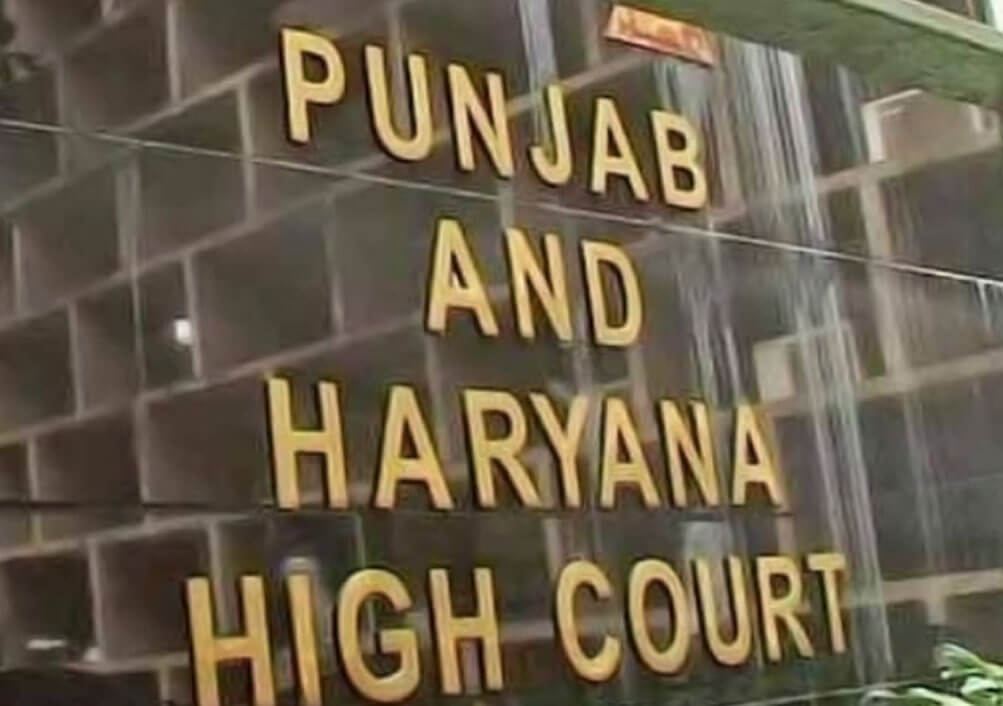In CWP No.16612 of 2020 (O&M)-PUNJ HC- Even if Collector is permitted to issue suo motu notice u/s 47-A(3) of Indian Stamp Act, it is to be done within 3 yrs from date of registration of instrument: P&H HC Justice Jaishree Thakur [30-03-2022]

Read Order: Kanwaljit Singh v. Divisional Commissioner and Others
Monika Rahar
Chandigarh, April 4, 2022: The Punjab and Haryana High Court has recently held that even if, Section 47-A (3) of the Indian Stamp Act permits the Collector to issue notice suo motu, it has to be done within a period of three years from the date of registration of the instrument.
The Bench of Justice Jaishree Thakur also added,
“In a catena of judgments, it has been held that the Sub Registrar would become functus officio after registration of the sale deed and in case he is to make reference, it has to be done immediately after registration of the instrument (…)”.
In brief, the facts of the case were that the petitioner purchased agricultural land for the sale consideration of Rs.17,55,000/- in the year 2007 and a stamp duty of Rs.1,58,000/- was paid. After the execution of the sale deed in the same year, the third respondent issued a letter to the second respondent in the year 2014 stating that the sale deed was not sufficiently stamped and thus proceedings under Section 47-A of the Indian Stamp Act may be initiated.
Thereafter, a notice was issued to the petitioner. In response to the same, the petitioner stated that the proceedings initiated under Section 47-A of the Act became time-barred. Without regard to this plea, the second respondent passed the first impugned order. Aggrieved, the petitioner filed an appeal which was dismissed by the second impugned order. Hence, the instant petition was filed before the High Court.
Primarily, the case of the petitioner’s counsel was that the impugned orders were unsustainable as the Sub-Registrar while registering the instrument did not impound the sale deed nor was any reference made to the Collector at his own instance. The sale deed was handed over to the petitioner after registration of the same. It was also argued that there were judgments to the effect that the reference can be made by the Sub-Registrar to the Collector immediately after registration of an instrument or in the course of registration.
At the very outset, the Court noted the undisputed facts of the case, namely the fact that the sale deed was registered in April 2007 by the Sub Registrar but at that point of time, he did not impound the sale deed nor did he send a reference to the Collector as envisaged under Section 47-A (1) of the Indian Stamp Act (as applicable to the State of Punjab).
After looking into the provisions of Section 47-A of the Stamp Act, the Court opined that Section 47-A (1) enjoins a responsibility on the Registering Officer to refer to the Collector any such instrument for determination of the value of the property in case he believes, while registration of the instrument that the correct valuation of the property has not been truly set forth. On receipt of such reference, the procedure as prescribed in Section 47-A (2) is to be followed.
The Court also added that the Collector may suo motu or on receipt of a reference from the Inspector General of Registration or Registrar of a District or on the receipt of a report of an audit by the Comptroller and Auditor General of India or by any other authority authorized by the State Government in this behalf or otherwise, within a period of three years from the date of the registration of the instrument, call for and examine said instrument for the purposes of satisfying himself as to the correctness of the value of the property.
Contrary to provisions of Section 47-A, the Court noted that in the present case, on the objection raised by the audit party, the reference was made by the Sub Registrar to the Collector regarding deficiency in stamp duty on the sale deed executed in 2007.
Thus, against this backdrop, the Court reiterated that the Sub Registrar would become functus officio after registration of the sale deed and in case he is to make reference, it has to be done immediately after registration of the instrument.
Reference in this regard was made to the case of Abhinav Kumar Vs. State of Haryana [P&H HC], wherein reference made by the Sub Registrar to the Collector within a period of 8 days was held to be invalid. Further reference was invited to the case of Seema Vs. State of Haryana and others in CWP No.27881 of 2017 in which it was held that the act of the Sub Registrar in registering a sale deed is an administrative act and not judicial or quasi-judicial and that his quasi-judicial jurisdiction starts with a notice of under-valuation by the party avoiding payment of proper stamp duty.
Thus, the Court came to the conclusion that even if, Section 47-A (3) of the Indian Stamp Act permits the Collector to issue notice suo motu, it has to be done within a period of three years from the date of registration of the instrument.
Further, the Court reflected light on another settled law which is to the effect that communication of the order alone confers on a paper the status of an order as has been postulated by Article 166 of the Constitution.
Therefore, in view of the finding rendered above, the impugned orders were quashed and the writ petition was allowed.
Sign up for our weekly newsletter to stay up to date on our product, events featured blog, special offer and all of the exciting things that take place here at Legitquest.




Add a Comment